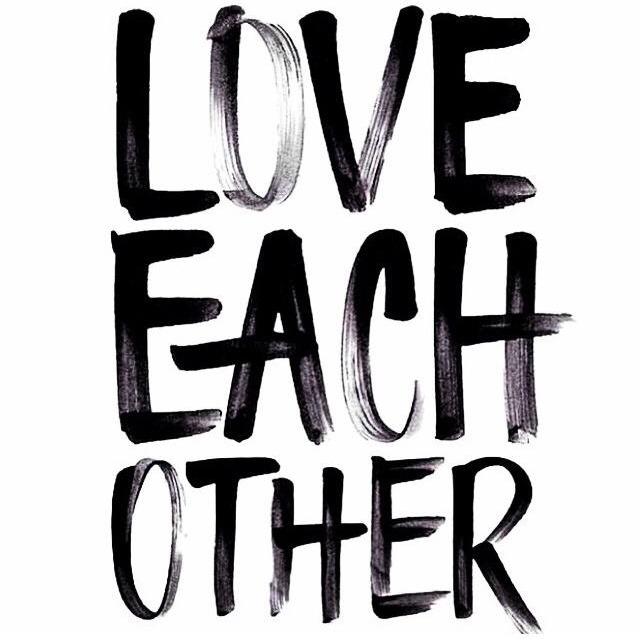Guest Post by Kathy Escobar.
It seems like there are always a lot of sparks flying around the internet. The hotter the topic, the greater the sparks, and it often seems that controversy “sells.” That’s a whole other conversation entirely, but while the internet has so many positives, one of its greatest negatives is that people feel the freedom to say whatever they think without the realities of looking into eyes, being across the table from a real human heart, and actually seeing a person and knowing their story.
We’ve gotten used to words on the screen, not hearts in the flesh.
We’ve gotten used to positions, not stories.
And that’s dangerous.
At the same time in real life, some of these hard conversations are pretty tricky to have. Getting multiple voices in the same room is hard enough; add in some passionate differences when they start getting revealed and things can get even tougher, sometimes almost impossible. The internet has become an easier way to converse; it protects us from each other.
The church’s best hope, in my opinion, is to learn how to engage with our differences in far better ways.
To learn how to become safer people who can live in the tension of differing views.
To become better listeners.
To learn how to hold space for hard conversations–not just online but in real life.
To begin to see these differences as opportunities to learn instead of openings to convince.
Our job is not to bomb bridges, but to build them–across theological interpretations, denominational divides, views on justice and equality, color of skin, socioeconomics, gender, and everything in between. That’s peacemaking.
And I’ll be honest–sometimes I don’t want to.
In my own community, The Refuge, that I love and cherish, we have differing views on all kinds of things ranging from biblical interpretation to same-sex marriage to politics to everything in between. We’re trying to live in this tension and let Christ’s love bind us all together in perfect unity. Sometimes it’s tiring, and I want to have Christ’s love bind me together with people who believe the same things as me! But alas, that was never the idea.
The kingdom of God is not a homogeneous group but a diverse, eclectic, wild and crazy (and often annoying) one. We’re all tangled up in this together. And Jesus said we’d be known by our love.
And this means we are going to have to figure out how to be in this together, despite our differences.
For years I have been part of all shapes and sizes of recovery and support groups–12 step meetings, healing groups, you name it. In each and every group we always start our time together with “guidelines” that are read no matter how many years we’ve been together. We never forget to read them because we always need the reminder of how to participate well, how to be safer people in the group, and how to make sure that everyone has the best shot possible to engage with the content. Reading them never gets old.
A few years ago, when we were creating a space for the Denver Faith and Justice Conference participants to engage in safer conversations on tough justice issues, the team asked me to take a stab at some guidelines for what we called “Dignified Dialogue” for the gathering. We tweaked them a bit this year, but the essence has lasted.
It seems like they’ve been helpful to help us sit eye to eye, face to face, heart to heart around tables with people who see things different from us.
In this open spot while Phil is gone, I thought I’d share them here because I think they can be a good starting place for creating safer spaces for hard conversations, to increase the likelihood that we can build bridges instead of bomb them, to help us become more loving people who are willing to listen.
5 Guidelines for Dignified Dialogue:
1. Consider first: “that person is first and foremost a child of God, created in God’s image, worthy of dignity and respect”
2. Ask questions to clarify understanding instead of only make statements.
3. “Stick with “I think”, or “My opinion is” or “My interpretation of the Bible is” or “I understand the Bible to be saying…” instead of making generalizations like “God says” or “God thinks” or “the Bible says.
4. Remember that this is an opportunity to listen and learn, not to convince, give advice, or change anyone else.
5. Honor the time with brevity and give others a chance to finish their thought before sharing yours. (In blogging, I know this is different, but the truth is when people clog up comments with pages and pages of words, we stop listening).
Despite how many hard conversations I have been in, it never ceases to amaze me how hard it is to honor these! They are all challenging in different ways, but I think that #2 is often the most difficult. I like to get my two cents in. In some circles #3 is the hardest because we have been trained to use the God or Bible trump card and it just feels freaky not to. Hopefully we are willing to notice our weaknesses and ask God to help us learn how to sit at the table and engage with our brothers and sisters who are different from us in better ways.
These guidelines are just a start; they help provide a foundation for safety. Without them, I don’t believe we are able to go further. As we practice these, then hopefully we can move to deeper dignified dialogue where we engage more intently in some of these hard conversations where we have definite differences.
Here are some questions that can help take things to the next level:
- What is your story? How did you get to where you are are today? (The truth is that’s the best thing we’ve got, to hear each other’s real stories)
- What are some of the primary things that influenced you to believe what you now believe?
- How have some of your views changed over time?
- What troubles you about where you have currently landed? What doubts do you have about your position or perspective?
- What brings you the most peace? What parts feel most clear?
- How have you wrestled with the scriptures about this?
- What misperceptions do you think people might have about you or your views?
- What have been some of the costs to your beliefs? Relationships, church, jobs, etc.?
- How have you felt misunderstood?
- What are ways I might be able to help you feel more understood? (bonus points for this one!)
Here’s to better ways to have really difficult conversations. God, help us be open, willing, humble, and brave.
 Kathy Escobar co-pastors The Refuge, a mission center and Christian community in North Denver dedicated to helping hurting and hungry people find faith, hope, and dignity alongside each other. She’s passionate about healing community, equality, and change in the church and is author of several books, including Down We Go: Living into the Wild Ways of Jesus and writes regularly about life and faith at www.kathyescobar.com.
Kathy Escobar co-pastors The Refuge, a mission center and Christian community in North Denver dedicated to helping hurting and hungry people find faith, hope, and dignity alongside each other. She’s passionate about healing community, equality, and change in the church and is author of several books, including Down We Go: Living into the Wild Ways of Jesus and writes regularly about life and faith at www.kathyescobar.com.












